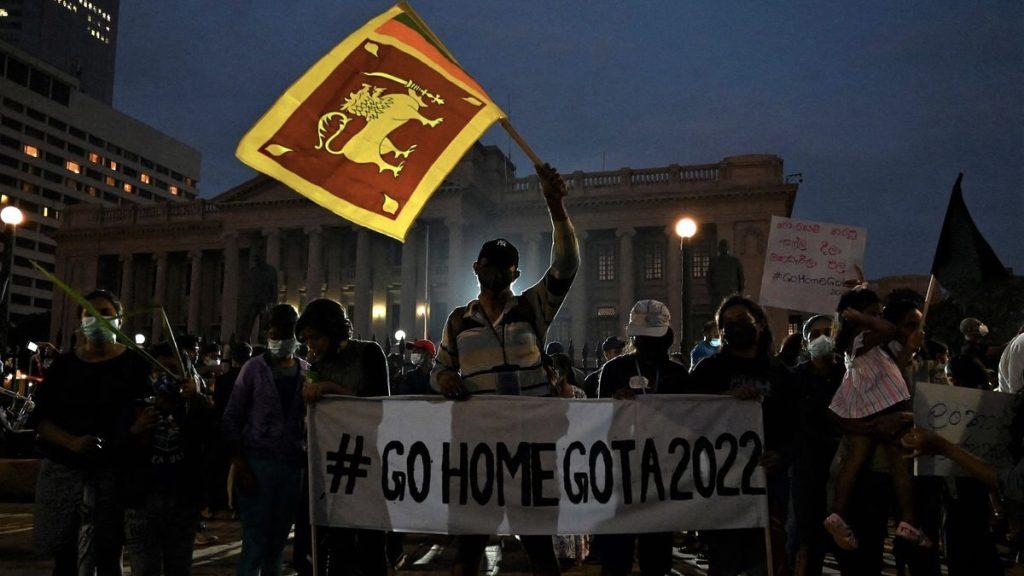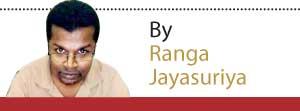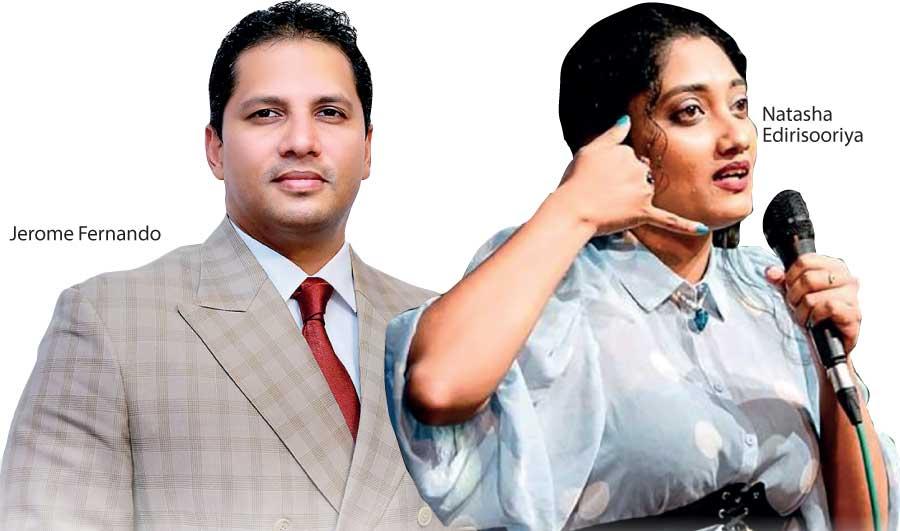Reply To:
Name - Reply Comment
Right to satire is freedom of expression; Courts should defend it

They vilify Aragalaya using isolated incidents involving some of the social media activists who were prominent in the protests while ignoring the millions of people who thronged the Capital city chanting “Gota Go Home’’ last year
I have written on these pages that when the fuel queues disappear and a semblance of old times dawns, Sri Lankans themselves will return to their old habits. The usual charlatans would
 crawl back from their hiding spots, promising to protect the country and Buddha Sasana from an imaginary enemy. Conspiracy theorists would start afresh. In their default mode, the majority of Sri Lankans tend to be mesmerized by conspiracy theories, racist dog-whistling and miracles of the sort of the cobra that slithered from the depth of the Kelani River carrying ‘Dathu’, one of the precursors to Gotabaya Rajapaksa’s presidency.
crawl back from their hiding spots, promising to protect the country and Buddha Sasana from an imaginary enemy. Conspiracy theorists would start afresh. In their default mode, the majority of Sri Lankans tend to be mesmerized by conspiracy theories, racist dog-whistling and miracles of the sort of the cobra that slithered from the depth of the Kelani River carrying ‘Dathu’, one of the precursors to Gotabaya Rajapaksa’s presidency.
It seems I am right on the money. Two weeks back, the country momentarily forgot the collective misery of the economic crisis to lambast an evangelical priest who had allegedly slighted Buddhism, Hinduism and Islam. ‘Self-proclaimed prophet’ Jerome Fernando of the affluent “Miracle dome” church faces arrest over his remarks made in a religious sermon and has filed a Fundamental Rights petition pleading a court injunction against his arrest. Jerome Fernando is, at best, a money-spinning conman, the type of evangelical clergy pervasive in Africa who offer salvation from miserable everyday existence for a fee. (One of those types in Kenya persuaded his followers to starve to death to go to heaven before the coming apocalypse. Many complied, and the Kenyan authorities are now digging up mass graves in a jungle religious sanctuary).
The CID is now reportedly investigating how Jerome Fernando made his millions or possibly billions to finance the construction of a luxurious church building. He allegedly has connections with another Zimbabwean pastor Uebert Angel who was exposed in an Al Jazeera documentary as plotting to exchange gold for dollars violating international sanctions.
 Jerome Fernando can be anything, but whether he should be hounded for remarks made at a religious sermon is a totally different affair.
Jerome Fernando can be anything, but whether he should be hounded for remarks made at a religious sermon is a totally different affair.
It is a matter that is not about Jerome Fernando himself, but the fundamental rights, free expression and freedom of thought of everyone else of Sri Lankans.
Reading the script of his sermon, one might find it very little to be offended unless you are a thin-skinned and insecure faithful, the type of congregation that most evangelical clergy is nurturing. He did not implore his followers to behead the apostates or declare war against non-believers. Law enforcement agencies and political leaders, who were not long ago dissuaded from taking action against Islamist fanatic Mohmmad Zahran, who spews exactly the type of hatred that needs to be censored, are now pursuing a man, who at best a conman, but hardly a hate preacher.
Natasha Edirisooriya is accused of inflaming religious disunity through her performance at the Fool’s Pride (Modabimanaya) comedic gig. Her detractors seemed offended by her repeated inference to ‘Suddhodanage podi eka (Suddodana’s little one), a reference to Prince Siddartha, who became the Gautama Buddha
When the authorities fail to differentiate between the two and think it is fitting to crack down on legitimate, probably mildly offensive talk, they, in fact, feed an insatiable beast.
That is exactly what is happening in Sri Lanka at the moment. Jerome Fernando was the beginning, but the victims of this paranoid, insular witch-hunt can come from all walks of life.
During the weekend, Police arrested a stand-up comedian Natasha Edirisuriya at the Katunayaka International Airport while planning to leave for Singapore over remarks she made at a comedy rendition in a school in April. She was denied bail and remanded till June 7. The International Covenant of Civil and Political Rights Act of 2006, many offences under which are non-bailable - which, like the PTA, has recently been abused.
Still, the joke is on the people. During the same week, Parliamentarian Ali Sabry Raheem was arrested at the Katunayaka airport while smuggling 3.5 kg of gold and a stash of mobile phones. He was fined, released, attended Parliament, and then left the country for another sojourn in Dubai.
Natasha Edirisooriya is accused of inflaming religious disunity through her performance at the Fool’s Pride (Modabimanaya) comedic gig. Her detractors seemed offended by her repeated inference to ‘Suddhodanage podi eka (Suddodana’s little one), a reference to Prince Siddartha, who became the Gautama Buddha.
The role of stand-up comedy is to amuse, but that is the very basic of its mission. In its heart, stand-up comedy is also about to offend, test the limits, even to mild discomfort, bordering irrelevance. As Rowan Atkinson, better known by his persona of Mr. Bean, put it, “Every joke has a victim. That’s the definition of a joke.” “It does seem to me that the job of comedy is to offend or have the potential to offend, and it cannot be drained of that potential,” Atkinson once said of “cancel culture.”
Edirosooriya’s remarks might have been inflammatory, had she barged into a temple on the ‘poya day’ and performed before the devotees observing Sil. Whereas the ticket-paying attendees of her gig had come to be offended, lampooned and tested limits.
The right to satire is an integral part of freedom of expression. No high authorities or higher divine should be immune from being lampooned. The Sri Lankan judiciary has a responsibility to set this record right rather than not be carried away by the outburst of a paranoid fringe who, if given the upper hand, would poison the entire nation.
There is one last point; looking glass self. Sri Lankans should ask themselves how they view and how often they foul-mouth in private, the societies where blind religious zealotry and often state decrees penalizing the criticism of religion, which had cannibalized everything on their way. Not long ago, a Sri Lankan factory manager was beaten to death in Pakistan by a mob who accused him of blasphemy.
The second is the predictable end of such regressive decrees that sap the spirit of the society. Over time such societies, or insular social and cultural milieus within them, breed monsters who murder and pillage in defence of their divine. From the editorial staff of Charlie Hebdo, France’s legendary satirical weekly, to countless victims of our part of the world have fallen prey to the bigotry, which had been generalized by the authorities.
Sri Lankan authorities should not validate the religious paranoia of a few. The destination such machinations would carry the country would be exceedingly miserable and not worth living.
Follow @Ranga Jayasuriya